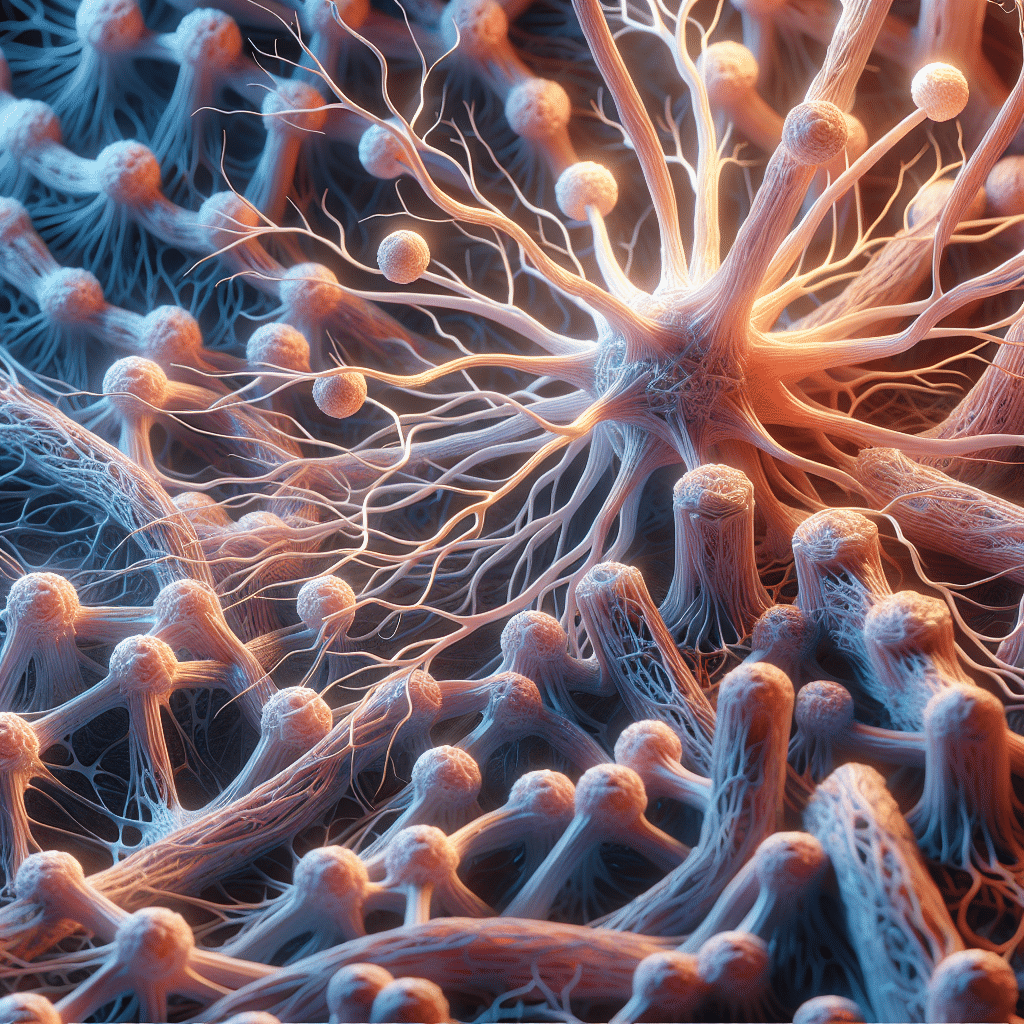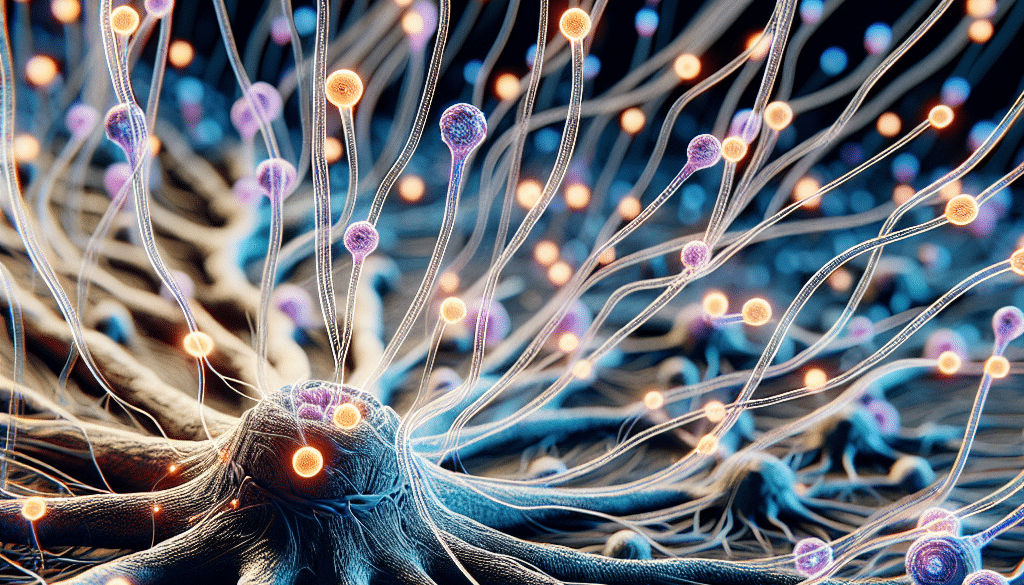Nervous Tissue: A Complex Structure of Neurons and Collagen
-
Table of Contents
- Nervous Tissue: The Intricate Network of Neurons and Collagen
- Understanding Nervous Tissue
- The Role of Neurons in Nervous Tissue
- Collagen’s Contribution to Nervous Tissue
- Interplay Between Neurons and Collagen
- Case Studies and Research
- Collagen and Neurodegenerative Diseases
- Conclusion
- Discover ETChem’s Protein Products
Nervous Tissue: The Intricate Network of Neurons and Collagen

The human body is a marvel of biological engineering, and at the heart of its complexity lies the nervous system. This intricate network, composed primarily of nervous tissue, is responsible for transmitting signals between different parts of the body, enabling us to move, think, and feel. Within this system, neurons and collagen play critical roles, though their functions are quite distinct. This article delves into the complex structure of nervous tissue, highlighting the interplay between neurons and collagen, and the importance of each in maintaining the health and functionality of the nervous system.
Understanding Nervous Tissue
Nervous tissue is one of the four main tissue types in the human body, alongside epithelial, muscle, and connective tissues. It is specialized for communication and consists of two main types of cells: neurons and glial cells. Neurons are the primary communicators, transmitting electrical and chemical signals throughout the body. Glial cells, on the other hand, provide support and protection for neurons.
- Neurons: The basic functional units of the nervous system, neurons are responsible for sending and receiving signals. They have a unique structure, including a cell body (soma), dendrites, and an axon, which facilitate the transmission of nerve impulses.
- Glial Cells: These cells outnumber neurons and serve various functions such as providing structural support, insulating neurons, and maintaining homeostasis within the nervous system.
The Role of Neurons in Nervous Tissue
Neurons are highly specialized cells that have evolved to quickly respond to stimuli and rapidly transmit information. They communicate with each other via synapses, where the axon terminal of one neuron comes into close proximity with the dendrite of another. Neurotransmitters are released at these junctions, allowing for the transfer of information from one neuron to the next.
- Sensory Neurons: These neurons respond to various stimuli from the environment, such as light, sound, or touch, and convert them into electrical signals.
- Motor Neurons: They transmit signals from the central nervous system to muscles and glands, initiating movement or responses.
- Interneurons: Found exclusively in the central nervous system, interneurons connect other neurons and are crucial for processing information.
Collagen’s Contribution to Nervous Tissue
While neurons are the stars of the nervous system, collagen is the unsung hero. Collagen is the most abundant protein in the body and a major component of connective tissue. In the nervous system, collagen provides structural support and plays a role in tissue repair and regeneration. It forms the extracellular matrix, a scaffold-like structure that not only supports cells but also influences their function and communication.
- Type I Collagen: This type is found in the meninges, the protective membranes surrounding the brain and spinal cord, and contributes to their structural integrity.
- Type IV Collagen: Present in the basal lamina, type IV collagen is part of the blood-brain barrier, a critical filter that controls the passage of substances into the central nervous system.
Interplay Between Neurons and Collagen
The relationship between neurons and collagen is symbiotic. Collagen structures provide a framework for neuronal growth and pathfinding during development and repair. Neurons, in turn, can influence the synthesis and organization of collagen in the extracellular matrix. This dynamic interaction is essential for maintaining the delicate balance required for nervous system function.
Case Studies and Research
Recent studies have shed light on the importance of collagen in neurobiology. For instance, research has shown that collagen mutations can lead to neurological disorders, emphasizing the protein’s role in maintaining neural integrity. Additionally, collagen-based biomaterials are being explored for nerve regeneration and repair, offering promising avenues for treating nerve injuries and diseases.
Collagen and Neurodegenerative Diseases
There is growing evidence linking alterations in collagen to neurodegenerative diseases such as Alzheimer’s and Parkinson’s. Abnormal collagen deposition can affect neuronal function and survival, potentially contributing to the progression of these conditions. Understanding the role of collagen in the nervous system could lead to novel therapeutic strategies for combating neurodegenerative diseases.
Conclusion
In summary, nervous tissue is a complex structure composed of neurons and collagen, each playing a vital role in its function. Neurons are the primary communicators within the nervous system, while collagen provides the necessary structural support and influences neuronal behavior. The interplay between these two components is crucial for the development, maintenance, and repair of nervous tissue. Ongoing research into the relationship between neurons and collagen holds great promise for advancing our understanding of neurological disorders and developing new treatments.
Discover ETChem’s Protein Products
If you’re looking for high-quality collagen products, ETChem offers a range of options that cater to various industries. Their collagen products, known for their neutral taste and instant solubility, are ideal for applications in nutraceuticals, pharmaceuticals, cosmeceuticals, and more. Whether you’re a distributor, trader, or manufacturer, ETChem can provide the protein solutions you need to support your business and customers.
About ETChem:
ETChem, a reputable Chinese Collagen factory manufacturer and supplier, is renowned for producing, stocking, exporting, and delivering the highest quality collagens. They include marine collagen, fish collagen, bovine collagen, chicken collagen, type I collagen, type II collagen and type III collagen etc. Their offerings, characterized by a neutral taste, instant solubility attributes, cater to a diverse range of industries. They serve nutraceutical, pharmaceutical, cosmeceutical, veterinary, as well as food and beverage finished product distributors, traders, and manufacturers across Europe, USA, Canada, Australia, Thailand, Japan, Korea, Brazil, and Chile, among others.
ETChem specialization includes exporting and delivering tailor-made collagen powder and finished collagen nutritional supplements. Their extensive product range covers sectors like Food and Beverage, Sports Nutrition, Weight Management, Dietary Supplements, Health and Wellness Products, ensuring comprehensive solutions to meet all your protein needs.
As a trusted company by leading global food and beverage brands and Fortune 500 companies, ETChem reinforces China’s reputation in the global arena. For more information or to sample their products, please contact them and email karen(at)et-chem.com today.

